Mariangela Bettanini: Music as a Journey
We speak of a voice.
She was born in Genoa, in the area of Foce where only ten years before Luigi Tenco, Gino Paoli, Bruno Lauzi, Umberto Bindi, and the Fratelli Reverberi would meet in the little piazza on Via Cecchi. Lauzi lived and Tenco’s mother had a wine shop on the very street where Bettanini grew up.
We’re talking about an extraordinary singer who knows how to surprise as only a few do. A voice, a history, and an experience set in the future. It is intense, clean, rough and sweet, and comes on quick.
But we’ll let this voice speak for itself: Mariangela Bettanini.
“It was the Sixties and my family listened to music every day. Depending on the time of day, there were the Beatles, the Rolling Stones, Bob Dylan, Joan Baez. The radio program Bandiera Gialla [Yellow Flag], or the songs of Luigi Tenco, Gino Paoli, de André. Then there was Paul Anka and Modugno, Vanoni who was singing about ‘the malavita.’ (organized crime). There were chants of the mondine [female rice workers] along with the Doors, Jimi Hendrix, Janis Joplin, the music festivals at San Remo.... Vivaldi and Beethoven, Chopin, baroque music, opera, Callas…!”
“In the morning I remember my mother often sang in the kitchen or listened to the radio while doing housework. Then my dad who loved opera would come home, and then my three older brothers. We would eat and then the turntable would start to play a wide range of music…”
Between the ages of 10 and 15 she studied classical piano privately. She then taught herself to play the guitar and sing, following her natural talent. And so she sang Bob Dylan, Joan Baez, and Italy’s own singer-songwriters...and then the bossa nova.
With a bit of imagination, we can almost picture her in that Genoa, in those streets, and in that setting.
“At that time I started singing professionally at various musical events. I was part of several groups of singer-songwriters and sang songs about the female condition and traditional Italian folk songs. My inner spirit of rebellion and research helped me a lot; I was shy and very insecure. After singing for hours locked in my room, I found and discovered in myself the courage to bring out the voice, grit, and passion. I didn’t know it at the time, but my song was a prayer, a longing for something bigger…”
On December 3, Bettanini will sing in a city that she knows and loves very much: New York. This time she will present her latest CD.
“New York is a paradise for music, it’s the crossroads where the greatest musicians from all over the world live or pass through. Being able to sing here is a great honor! I came to New York at the end of 2006. I had just recorded a CD with Dado Moroni, Paolino Dalla Porta, and Enzo Zirilli.”
In what state of mind did you arrive?
“I had no connections. I was very excited. I remember the sense of space and possibility. My trip was also, in a sense, rather practical and logical! I said to myself: ‘If I wanted to sell champagne, I would go to France to taste it and live there for a while. If jazz is truly my path, then I’ll go where they created it! I will listen, learn, and then see what happens.’”
Mariangela’s strength lies in her courage to take risks and experiment, which is inherent to her musical choices.
“When my research leads me to undertake a new journey, a path unknown to me, I document the process and procure the technical means. Technique and fundamental knowledge don’t need to dominate musical expression, but they do remain in service to it. This is my personal recipe. I learned a lot by singing in front of an audience as a little girl, in those moments of panic and desire to express myself – to give the best of oneself, to establish a real sense of communication. Narcissism and the need to be heard and applauded are always there and it’s OK! But what needs to prevail is the contact with the essence, the eternal, which allows you to create a space for intimacy and true communication.”
And what does she say about her colleagues overseas?
“I have always felt at home with musicians in New York. There is a kind of absolute dedication, even competition, but I would call it dedication, to devote their entire lives to music without paying much attention to personal comfort and the practical aspects of life, and living among many other good and talented musicians – I would say this is an act of faith in their own abilities and faith in life.”
The selection of songs she chose to perform this time around is directly connected to her CD and it has brought her back to her roots. She is, in fact, performing compositions by Genovese musicians.
“I was in New York and I wondered what I could share that was really my own. What distinguished me from the others? What were my resources? Where did I come from? From Genoa, from Foce, from beautiful Italian songs…from the love of poetry and melody…. And as I was timidly approaching jazz, the fusion was almost inevitable….”
“Aesthetically speaking, I then felt the desire to hear songs played by jazz musicians overseas who had absorbed them while “sucking milk from the bottle.” Perhaps they had a parent who was a fan of this kind of music or they had listened to Count Basie’s or Duke Ellington’s orchestra on the radio at home.... I mean jazz musicians who had a history like mine, except that instead of listening to Mina, they were listening to Billie Holiday. And indeed, when I arrived in New York last May, I only brought music scores with me: notes on pieces of paper.... I was really excited... and happy! That is, the idea was to bring only the music scores and to ask musicians play them, musicians who weren’t familiar with the original songs, musicians who had their own cultural, American background, not the same as mine….”
It’s almost useless to ask about her relationship with the United States and New York; it’s palpable.
“American jazz and musicals in addition to French singers-songwriters – these are the musical building-blocks of Genovese singer-songwriters. It’s a bit like bringing them back home, returning them to the source, even if some of them, like Fabrizio de André’s songs, have more of an ‘ethno-folk,’ European, and Mediterranean musical bend.”
“’Sassi,’ by Gino Paoli, for example, reminds me a lot of ‘Summertime.’ It’s a bit like giving them the breadth of an evergreen, of an eternal, international song.”
Over the course of her career Mariangela has explored folk and melodic Italian music, Brazilian folk and pop music, American gospel and spirituals, rock, rhythm ‘n’ blues, soul, songs by French and Italian singer-songwriters. And then she came to jazz.
I spontaneously thought to ask her what she brought to jazz with all of her broad musical experience.
“A lot of confusion at first, because jazz is a coded language, so one must learn it the same way one learns a language. The timing, the phrasing... you don’t become a jazz singer in a few years even you’ve sung your whole life, like me. That is, from the start you must forget all of your past experiences, you must undress. As I like to say, ‘Sing like you sing in the shower!’”
“Someone once wrote that I attempted tired, worn out melodies with originality…or something to that effect. Certainly my experience in other musical genres creates a versatile, eclectic approach. I learn to connect with the intensity and profound sadness when I sing the blues, or the grit that I draw on to sing certain kinds of Italian folk music, or the power and presence that I use to sing rock or rhythm ‘n’ blues, while finesse and control are necessary when singing classical songs. I would also say the sound. The work on the sound of my voice is the thing that I would say distinguishes my vocal style. The sound is the work of an entire lifetime for me, so I hope it comes out in the way I sing jazz.”
The sound is her life’s work. There is another important aspect of her life, one that touches on spirituality and music on a path to inner knowledge. We try to understand…
“The voice tells you the state of a person’s awareness…where he or she is on the path… what the resources are, and where there are psychological aspects that need to be nurtured, the qualities that have not been supported and that could be amplified and facilitated. The voice is the sound of our deepest reality…you really can’t control it; even with the most aggressive techniques, it’s our inner reality.”
“This is why singing is so fear-provoking, because singing is an expression of the deepest part of ourselves, and it is very tied to emotion. In fact, there is an expression that says the voice ‘betrays’ an emotion, or that the voice ‘trembles’ with emotion. I start with my own trembling, I go inside and then I see and feel what happens. From this place comes the authenticity of sound. And I combine this inner search with the inner artistic voice.”
“As I slowly proceed along the path, I always become more aware of how much singing and playing music in a certain way can create places for love, and how they can transform an environment, even for a few minutes, by bringing sweetness, lightness, awareness, and peace to many people at once. My life is leading me in this direction.”
Her concert in New York will be a true journey into Italy’s musical history. Everyone who attends will not only hear an astonishing voice, but also have the opportunity to enjoy a thoughtful selection of truly engaging music.
“In celebration of Fabrizio de André on the tenth anniversary of his death, I chose four key compositions that I think could be adapted to jazz and illustrate the main themes of his poetry:
Life, liberty: Il suonatore Jones (Jones the musician);
Love: Amore che vieni, amore che vai (Love that comes, love that goes);
Death: Anime salve (Saved souls)
Genoa: Creuza de ma (In Geneva dialect “Mulattiera di mare – mule track of the sea)
The CD begins with Musician Jones:
In a swirl of dust the others saw drought.
It reminded me of Jenny’s skirt at a dance so many years ago.
This start seemed beautiful to me, as if it were Fabrizio speaking like that, not Fiddler Jones.”
“So, from the perspective of this ‘someone’ who is far away but nearby, in meeting through music, in another dimension of art, love, compassion, I added six more songs, one that I wrote, and one each by Luigi Tenco, Umberto Bindi, Bruno Lauzi, Gino Paoli, and Ivano Fossati. I also included Giorgio Calabrese and Gianfranco Reverberi who have written so much for the ‘Scuola Genovese,’ with a song that’s very dear to me: ‘Se qualcuno ti dirà.’ [If Someone Tells You]”
We conclude this meeting of music in words that could last hours. We enter the world of desires and dreams. We ask which musician in particular she would like to work with in New York. Her answer is happy and contented.
“If I were to plan something new, even a project on American songs, I could ask no more than to work with the trio with whom I recorded: Pete Malinverni on piano, Ugonna Okegwo on bass, and Billy Drummond on drums. There is passion, elegance and sensitivity – the three ingredients that for me are fundamental in jazz. On a personal level, I couldn’t have found people who were more warm and respectful!”
And here are her plans:
“One project of my own compositions related to the world of Sufism that will take me to Turkey right before Christmas. It’s a series of meditations and songs entitled ‘Il Canto del Silenzio’ [The Voice of Silence]. It’s a monumental project on jazz that I would like to bring here to New York within five years, God willing!”
Thursday Dec 3
CD RELEASE EVENT FOR
"JAZZIN' some singer songwriters
from GENOVA"
MARIANGELA BETTANINI vocals
PETE MALINVERNI piano
LEE HUDSON bass
BILLY DRUMMOND drums
Kitano Hotel
66 Park Ave @ (E.38th Street)
NYC
Please advertise Reservations Advised Tel 212 885-7119
Early Dinner receive preferred seating (6:30 - 7:00 PM)
No Cover, No Music Charge, $15.00 minimum on food or beverages.
Great American and Japanese menu , very reasonable.
2 shows 8 pm & 10 pm
Sponsored by Regione Liguria
In collaboration with the Italian Cultural Institute of New York































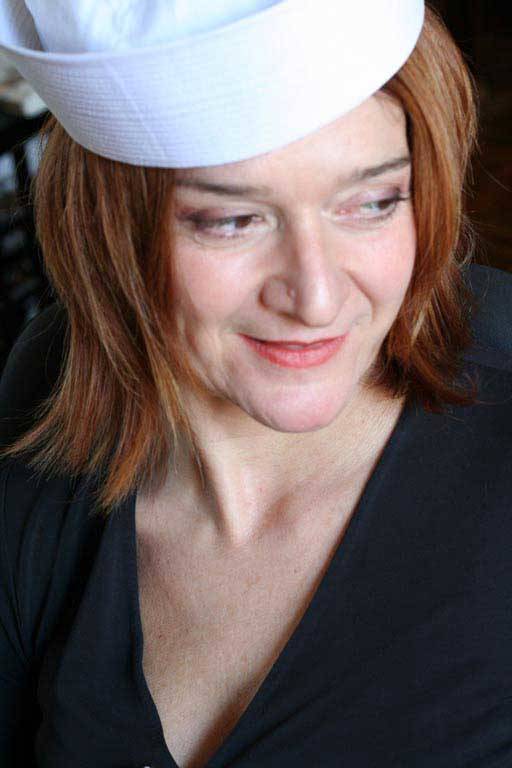

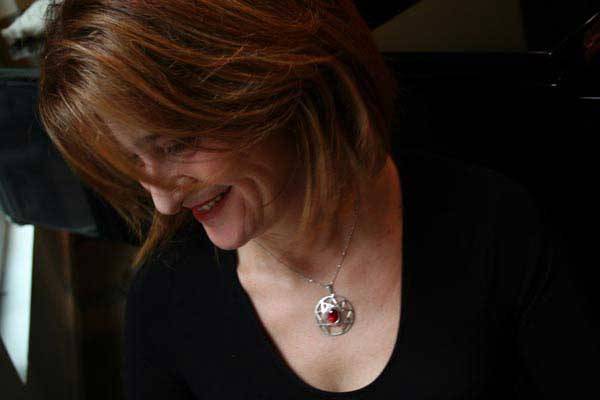


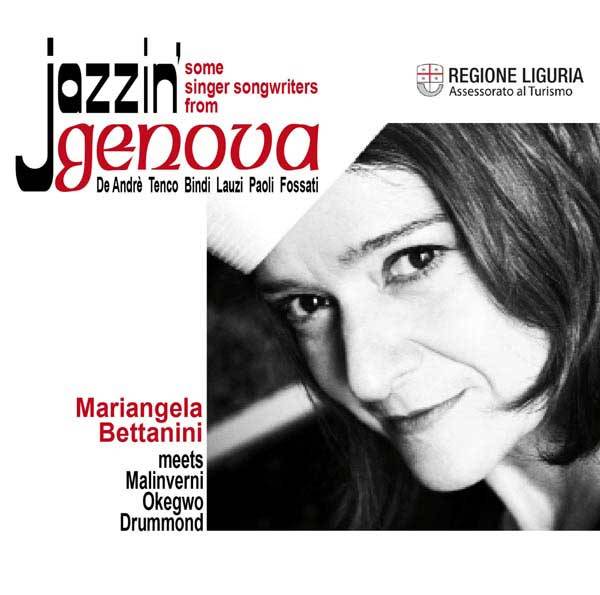



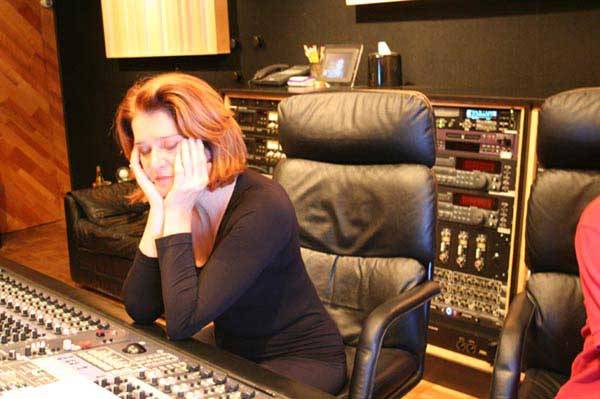


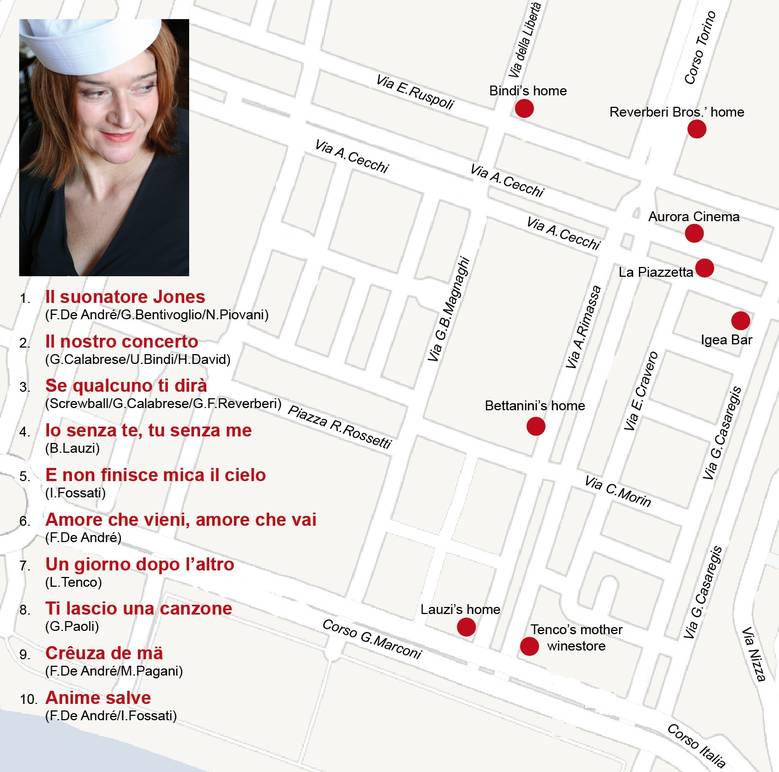




i-Italy
Facebook
Google+
This work may not be reproduced, in whole or in part, without prior written permission.
Questo lavoro non può essere riprodotto, in tutto o in parte, senza permesso scritto.